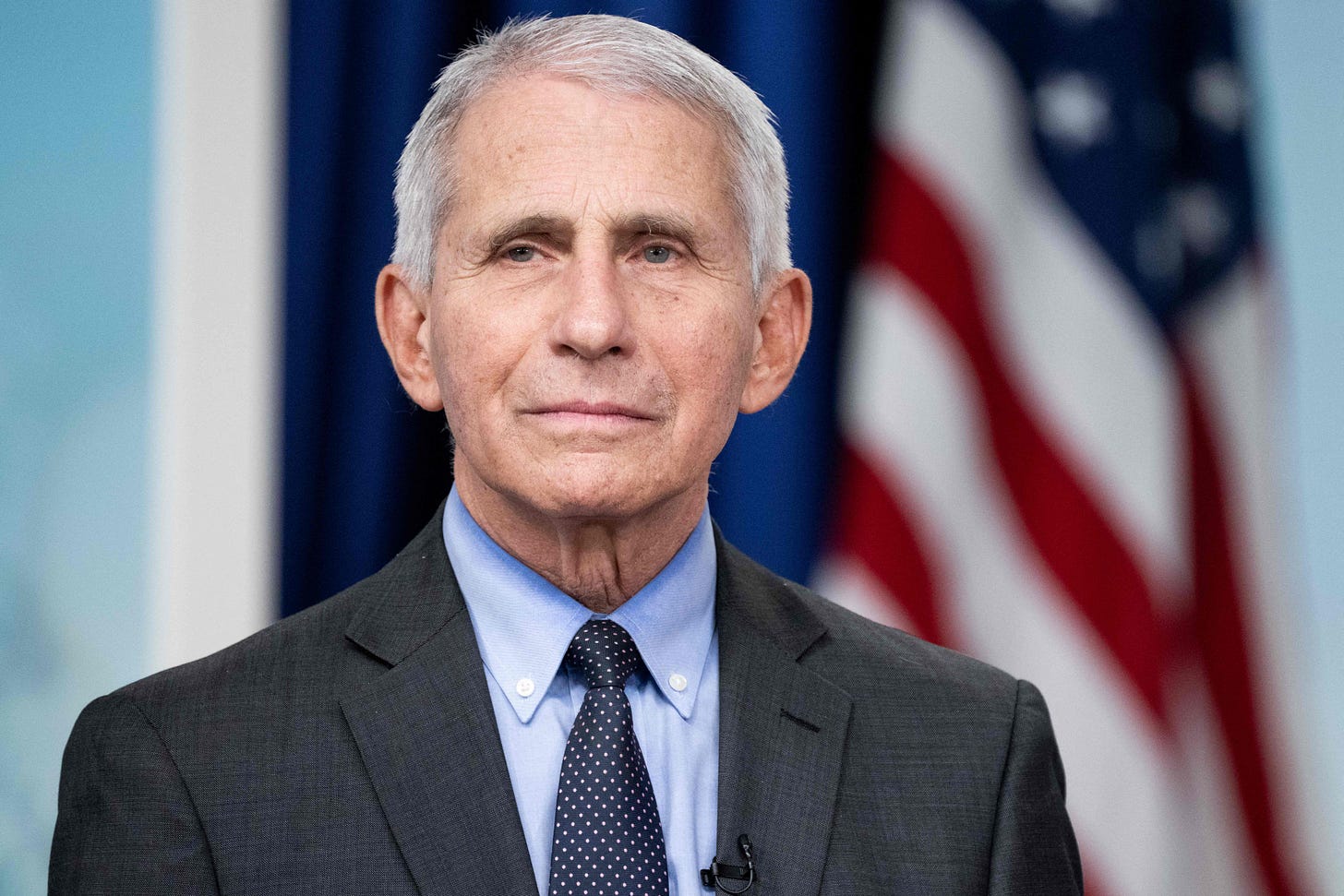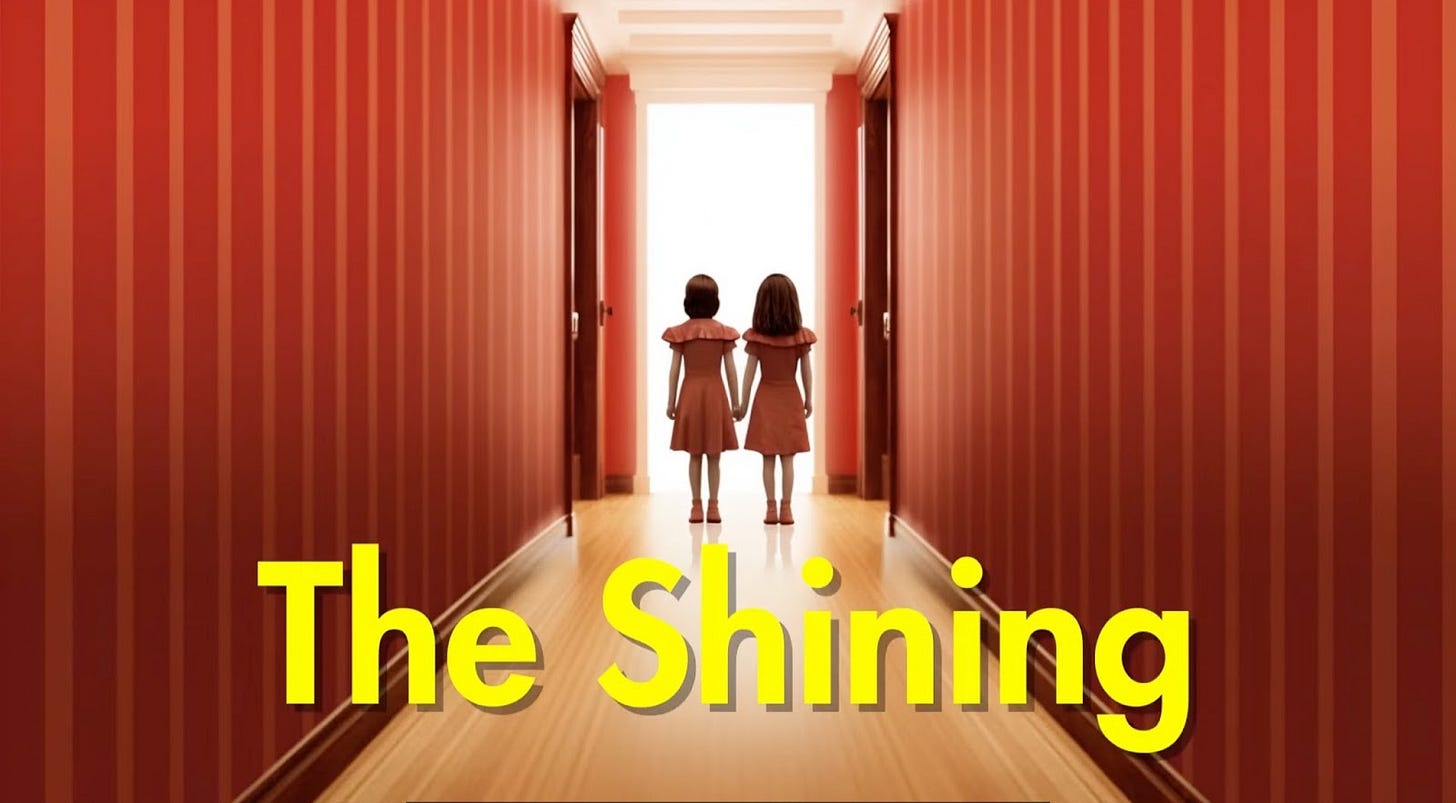Fauci, Fauci, Fauci
The Hatred Of Censorship :: Rubio Confirms UFO Cover-Up :: Affirmative Victimhood
London On Demand
We’ve been hyping it for weeks. It happened. It was glorious.
And soon, you’ll watch it on your screen of choice.
We’re getting ready to put our full London event — starring Michael Shellenberger, Matt Taibbi, and Russell Brand — online. Here’s a quick teaser I put together to get your juices flowing.
—LW
“Tony doesn’t want his fingerprints on origin stories.”
For the last three years, former National Institute for Allergy and Infectious Diseases (NIAID) head Anthony Fauci has said that scientists had independently concluded a Covid lab leak was unlikely.
But a new email released through a Freedom Of Information Act (FOIA) request makes clear that he was the one who orchestrated the “disinformation” campaign against it. “Tony [Fauci] doesn’t want his fingerprints on origin stories.”
“Don’t worry,” said Fauci advisor David Morens, "...I will delete anything I don’t want to see in the New York Times.”
Morens "also expressed his intention to delete emails in order to avoid media scrutiny," noted Jimmy Tobias for The Intercept, which was the first to report the story.
“As you know, I try to always communicate on gmail because my NIH email is FOIA’d constantly,” wrote Morens. “Stuff sent to my gmail gets to my phone but not my NIH computer.”
As such, Morens was evading the Freedom Of Information Act. You can't use a personal email to avoid FOIA law.
“The more a personal email message was used by the agency for official business,” explains the Reporters Commitee for Freedom of the Press, “the more likely courts are to consider it to be subject to FOIA."
Did Fauci know Morens was doing this? Perhaps. “Tony doesn’t want his fingerprints on origin stories,” said Morens in another email.
Enough is enough. The latest round of emails makes clear that US government officials are still hiding information. And everything important that we know about Covid origins has had to be beaten out of officials through lawsuits and FOIAs and government officials talking on background.
Millions of people died from Covid and we still don’t know how it started. A 9/11-style commission could get to the bottom of what happened. At a certain point you have to wonder if the reason we don’t have one is because they don’t want us to.
— MS
The Hatred of Censorship
Ireland’s Justice Minister Helen McEntee wrote an oped last Sunday arguing, “With this legislation, we are protecting those most vulnerable to hate crime and hate speech and respecting the very generous Irish tradition of live and let live.”
This is how she described a proposed law that would allow the police to enter people’s homes and search their phones and computers without a warrant and for courts to presume them guilty until proven innocent.
The “most vulnerable” are never, ever protected by censorship. They are empowered by freedom of speech. At no moment in history were the censors the good guys.
McEntee claimed that "the public consultations we have undertaken since 2019 on this legislation... were significantly positive." But the journalist Ben Scallan, interviewed by Public last month, found that 73% of the 3,500 responses to the legislation were negative.
Moreover, the legislation contradicts itself. McEntee wrote that, under her legislation, "you cannot dangerously rile up other people to hate..."
But isn't that precisely what she's doing with her legislation? Riling up other people to hate?
Anybody who has been to Ireland or met the Irish knows that they are some of the most tolerant, decent, and loving people in the world, no doubt partly as a result of what they went through for so long. The idea that there is some spontaneous grassroots hatred is ridiculous.
The Irish Senate is still expected to pass McEntee’s censorship legislation, but opposition is growing.
A response to Justice Minister Helen McEntee gave a glimpse into how intimate Irish politics must be.
“Helen,” tweeted Senator Sharon Koeghan, linking to a video of her explaining how draconian the law is, “I'm sorry to say you are misleading everyone here.”
Indeed. The public appeared to agree. Nearly ten times more people replied to McEntee, and negatively, than re-tweeted her. There’s still hope she’ll get back to the Irish tradition of “live and let live.”
—MS
This Week In Deep Fake: “The Shining” by Wes Anderson
Affirmative Victimhood
Yesterday the Supreme Court ruled 6-3 that race-conscious admissions programs at the University of North Carolina and Harvard are unconstitutional and violate the Equal Protection Clause of the Fourteenth Amendment.
In his majority opinion, Chief Justice John Roberts noted the clear evidence that these universities had discriminated against Asian Americans. At Harvard, a Black student in the fourth lowest academic decile has a higher chance of admission (12.8%) than an Asian student in the top decile (12.7%).
In her dissent, Justice Kentaji Brown Jackson argued that using the Equal Protection Clause to rule against affirmative action is “truly a tragedy for us all.” Democrats like Barack Obama and President Joe Biden also condemned the ruling. Seemingly forgetting that California voters made affirmative action illegal for state and public colleges in 1996, California Governor Gavin Newsom warned that “right-wing activists — including those donning robes — are trying to take us back to the era of book bans and segregated campuses.”
The Supreme Court’s ruling was the outcome of a years-long effort to challenge and dismantle race-based admission programs, but colleges have also spent years preparing for this moment. As such, many colleges have already eliminated SAT and ACT requirements. Asian students outperform other races on standardized tests, and taking these tests off of college applications gives greater weight to personal essays.
These essays essentially open a backdoor for race to be considered as part of a student’s application. For example, the 2023-24 essay prompts on the Common App (which is accepted by over 1000 colleges) ask students to share about their “background” and “identity” or to write about “obstacles” they have faced.
This creates a loophole through which colleges can still use race as a factor in admissions. The Supreme Court, in fact, leaves this loophole wide open. “Nothing prohibits universities from considering an applicant’s discussion of how race affected the applicant's life,” the ruling states. Citing this part of the ruling, an official letter from Harvard proudly stated, “We will certainly comply with the Court’s decision.”
So while meritocracy earned a symbolic victory, the end of race-based discrimination in college admissions is still a long way off.
A few hours after the court’s decision came out, Chris Rufo released a video of Berkeley Law School dean Erwin Chemerinsky explaining how he and his colleagues already used race when making decisions in hiring by simply being more subtle about it.
"If ever I'm deposed,” Chermerinsky can be heard telling his students, “I'm going to deny I said this to you."
—AG
Sen. Marco Rubio Confirms UFO Cover-Up









